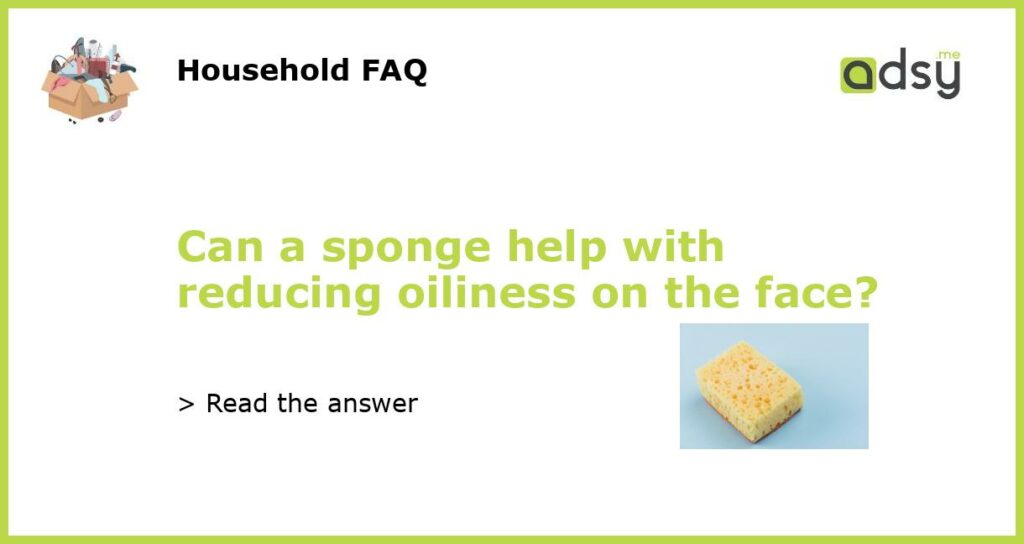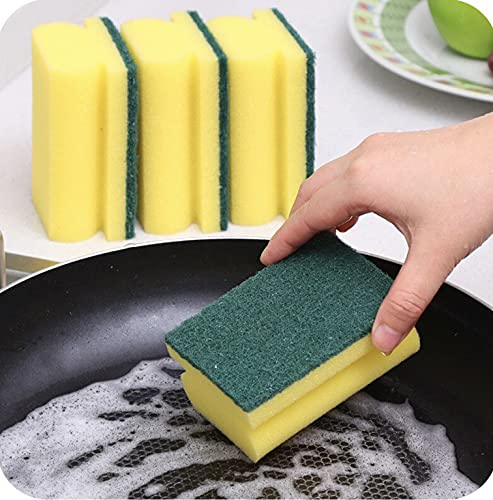Understanding the Problem of Oiliness on the Face
Oiliness on the face can be a frustrating and persistent problem for many people. Excess oil production by the sebaceous glands can lead to a shiny and greasy complexion, clogged pores, and acne breakouts. While there are various skincare products and treatments available to combat oiliness, some people have started to explore unconventional methods, such as using a sponge, to reduce oiliness on the face.
The Benefits of Using a Sponge for Oil Control
Using a sponge as part of your skincare routine may help address oiliness on the face in several ways:
1. Absorbs Excess Oil: Sponges are known for their absorbent properties. When gently applied to the face, a sponge can help soak up excess oil, reducing the shiny appearance and giving the skin a more matte finish.
2. Gentle Exfoliation: Some sponges have a slightly rough texture, which can provide a gentle exfoliation effect when used to cleanse the face. This can help remove dead skin cells and unclog pores, which are often contributors to oiliness.
3. Enhances the Effectiveness of Skincare Products: Applying skincare products with a sponge can help distribute them evenly across the face. This ensures that the products are thoroughly absorbed by the skin and can effectively target oiliness and other skin concerns.
Choosing the Right Sponge for Oil Control
To make the most of using a sponge for reducing oiliness on the face, it is important to choose the right type of sponge. Here are a few factors to consider:
1. Material: Natural sponges, such as those made from sea or konjac, are popular choices for skincare because they are gentle on the skin and biodegradable. They are also believed to have some antimicrobial properties. Synthetic sponges, on the other hand, may be more durable and easier to clean.
2. Texture: Look for a sponge with a slightly rough texture for gentle exfoliation. Avoid sponges that are too abrasive as they can cause irritation and damage the skin.
3. Size and Shape: Choose a sponge with a size and shape that fits comfortably in your hand and is easy to maneuver around your face.
How to Use a Sponge for Oil Control
Using a sponge for oil control is a simple process that can be incorporated into your daily skincare routine:
1. Wet the Sponge: Before use, wet the sponge with warm water until it becomes soft and expand.
2. Apply Cleanser: Squeeze a small amount of facial cleanser onto the wet sponge.
3. Gently Massage the Face: Use circular motions to gently massage the cleanser onto your face using the sponge. Pay extra attention to areas prone to oiliness, such as the forehead, nose, and chin.
4. Rinse and Dry: Rinse the sponge thoroughly with warm water to remove the cleanser. Squeeze out any excess water and allow the sponge to air dry completely before storing it.
Other Tips for Managing Oiliness on the Face
While using a sponge can be a helpful tool in managing oiliness on the face, it may not be a standalone solution. Here are some additional tips to complement your skincare routine:
1. Use Oil-Free or Lightweight Moisturizers: Opt for oil-free or lightweight moisturizers that won’t further exacerbate oiliness on the face.
2. Avoid Harsh Cleansers: Harsh cleansers can strip the skin of its natural oils, leading to an overproduction of oil. Choose gentle cleansers that are specifically formulated for oily or acne-prone skin.
3. Regularly exfoliate: Incorporate regular exfoliation into your skincare routine to remove dead skin cells and unclog pores. However, be careful not to over-exfoliate, as this can irritate the skin and trigger more oil production.
4. Consider a Balanced Diet: Eat a balanced diet rich in fruits, vegetables, and whole grains. Avoid excessive consumption of greasy and fried foods, as they can contribute to increased oiliness on the face.
5. Seek Professional Advice: If despite your efforts, oiliness persists and is causing significant discomfort or affecting your self-esteem, it may be beneficial to consult a dermatologist. They can provide personalized recommendations and interventions to manage oiliness and improve the overall health of your skin.






